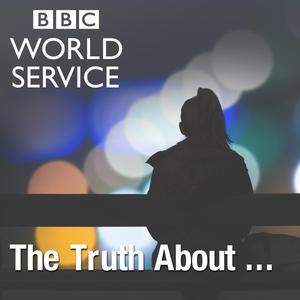
The Truth About...
BBC
.
- 26 minutes 22 secondsDying in Comfort in Mongolia
Anu Anand travels across the globe to investigate how different countries are tackling cancer, one of the world’s biggest killers.
In this first of six programmes, Anu travels to the freezing plains of Mongolia to find out why these traditionally nomadic people, living in a rugged environment, are so prone to the slow and silent killer - liver cancer. She asks why it is hitting Mongolians so hard and meets one local matriarch who is leading a crusade to help those who cannot be cured to die in comfort. The country has the highest death rate from liver cancer, six times the global average, and most people have no idea they have the disease until it is too late. It is caused by two strains of the Hepatitis virus and at least a quarter of the population are infected with at least one. Alcohol, which is cheap and plentiful, exacerbates the problem.
Today Mongolia is embracing palliative care to ease the suffering of patients as they approach the end-of-life. While this branch of medicine is a well-established in the West, it was completely unknown in Mongolia 15 years ago.
It was only when professor Odontuya Davaasuren heard of the existence of palliative care, and lobbied for change, that Mongolia started to embrace this crucial aspect of cancer medicine. Today hospitals and pharmacies in every province provide support and medication to the terminally ill, and beds for the dying in hospitals and hospices are on the increase.
Photo credit: Anu Anand ©
Producer: Beth Eastwood
16 June 2017, 11:42 am - 26 minutes 59 secondsFailing Gracefully
Dr Kevin Fong concludes his exploration of the boundaries between the medical profession and other industries for valuable lessons that might be of use to us all.
In this final episode, Kevin talks to people who have spent their lives investigating what it takes to make high-performance, high-reliability systems work safely when lives are on the line.
Since the days of Project Apollo, people have come to rely more and more heavily upon the digital computer. Whether it is aerospace, the automotive industry, medicine or even the financial sector, technology has become so central to the success of these complex systems, that it has become increasingly more difficult for the human to remain in control when these systems fail. Technology, some argue, is not just replacing us, it is displacing us.
Is this situation inevitable or is there a way to better protect ourselves from the risks that opaque, complex technological systems create?
(Photo: Kevin Fong and Paul Fjeld next to Lunar Module 2)
1 August 2016, 10:00 pm - 26 minutes 59 secondsGoing Lean: Health and the Toyota Way
In the third programme in the series, Dr Kevin Fong explores the concept of ‘lean’ in healthcare. He visits Toyota’s largest car assembly plant in the United States and discovers how the company’s legendary management philosophy – the Toyota Production System – is being implemented in hospitals, in an effort to improve patient care. Toyota’s philosophy of continuous improvement aims to increase quality and flow whilst decreasing cost. But whilst this may work well for the mass production of cars, can it really improve the care of individual patients?
25 July 2016, 10:00 pm - 26 minutes 58 seconds“Faster, Better, Cheaper”
Dr Kevin Fong continues to explore the boundaries between the medical profession and other industries for valuable lessons that might be of use to us all. The second programme recounts the ups and downs of NASA’s Jet Propulsion Laboratory.
The story begins in the early 1990’s, when NASA was in a very different place from the glory days of the Apollo era. Still dealing with the fall-out from the Challenger accident and other problems with its unmanned missions, the agency’s budget was significantly cut back. Its new administrator, Daniel Goldin, was forced to adopt a very different and riskier approach to space exploration, one that was in many ways anathema to the NASA’s engineers and scientists: it was dubbed: Faster, Better, Cheaper.
But as we’ll hear, this approach came at a price and would lead to nearly a decade of failures as the cost-cutting took its toll. Kevin talks to NASA experts, including Robert Manning, chief engineer of arguably, the most ambitious and successful of all their planetary missions, Mars Science Laboratory, which landed the Curiosity rover on the surface of the red planet in 2012. How did they overcome repeated failures to achieve this remarkable success? And what can that experience teach us about delivering better healthcare?
18 July 2016, 9:32 pm - 27 minutesThe Business of Failure
In a new four-part series for BBC World Service and The Open University, broadcaster and medic Dr Kevin Fong explores what healthcare can learn from other organisations that succeed and fail. In this programme, Kevin joins a helicopter air ambulance crew in the United States and discovers how the combination of commercial pressures and de-regulation have resulted in helicopter EMS becoming one of the most dangerous occupations in the country. According the National Transport Safety Board, the body charged with investigating aircraft safety, over a twenty year period, they have averaged one accident every 40 days in the United States. Kevin hears from medical crew, pilots, regulators and survivors, to discover what needs to change in order to reduce accidents and improve safety for the hundreds of thousands of patients transported by helicopter air ambulances each year.
Photo by Heath Holden/Getty Images
11 July 2016, 9:32 pm - 26 minutes 47 secondsAIDS in the Philippines
Dr Margarita Holmes is one of the best-known advisers on sex and relationships in the Philippines, drawing on her extensive clinical experience as a psychologist. In this programme she talks to people with HIV/Aids about the ethical and personal dilemmas they face. In a series of intimate and searching conversations, she hears their stories about confronting taboos, choosing who to tell and when, and how they maintain relationships while carrying the virus. In a country where the Catholic Church’s teachings on homosexuality are highly influential, Dr Holmes explores the often-hidden realities of living with HIV.
(Photo: A couple embracing and a ribbon forming the symbol for HIV/Aids. Credit: Shutterstock)
19 April 2016, 1:47 pm - 26 minutes 46 secondsAIDS in Uganda
Dr Peter Mugyenyi runs one of Africa’s largest HIV medical research institutes, the Joint Clinical Research Centre in Kampala, which he helped to found in the early years of Uganda’s AIDS epidemic. Uganda was the first African country in which AIDS was identified.
Peter explains the realities of HIV treatment in Ugandan clinics today, a decade after effective drugs against the virus started to become more widely available in African countries. Life prospects for hundreds of thousands of Ugandans are much better than they were. Yet an estimated 40% of adults with HIV are not receiving any treatment.
The proportion of untreated infected children is even higher. In conversations with Ugandans who are living with HIV, fellow medics and health workers, activists and government representatives, Peter Mugyenyi explores the successes, failures and challenges in getting the best possible treatment to every Ugandan who needs it. That ambition is also a vital part of preventing the continuing transmission of the virus in African countries.
(Photo: Dr Peter Mugyenyi and staff at Butolo Anti-retroviral Therapy Clinic, Uganda. Credit: Andrew Luck-Baker)
15 April 2016, 1:54 pm - 26 minutes 47 secondsAIDS in Russia and Australia
Former UK Health Secretary Norman Fowler continues his investigation into what works and what does not when it comes to reducing the rate of HIV/Aids. He travels first to Russia where the infection rate is still rising, mainly among drug addicts. He finds tough drug abstinence programmes in place rather than needle exchanges and the use of methadone, policies which have been applied effectively elsewhere. And, he hears testimony of the stigma and suffering endured by Russian homosexuals.
He journeys on to Sydney in Australia, where he finds some of the most effective public health programmes in place – including the decriminalisation and regulation of sex work.
(Photo: A Russian boy holds banner reading Stop Aids. Credit: Denis Sinyakov/AFP/Getty Images)
12 April 2016, 1:40 pm - 26 minutes 47 secondsAIDS in Britain and America
Former UK Health Secretary Lord Fowler focuses on his own experience. When the virus hit Britain, and despite opposition from then Prime Minister Margaret Thatcher, he pushed through a major public information programme.
Now, 30 years later, Lord Fowler travels across the globe to examine a set of simple but effective policies which can keep people safe and healthy - and to inquire why they still meet fierce resistance in some parts of the world.
Photo: Aids Activists Rally In Front Of White House (Credit: Chip Somodevilla / Getty Images)
9 April 2016, 1:36 pm - 26 minutes 47 secondsThe Fight Against Aids
Tony Fauci looks back at the scientific breakthroughs that have transformed HIV/Aids from a death sentence to a disease that can now be treated and prevented. Having watched in horror as his patients quickly died from the disease in the US in the early 1980s, as director of the National Institute of Allergy and Infectious Diseases, he has dedicated his career to fighting it.
He talks to the Aids activists who pressurised the US government and Dr Fauci himself to find the drugs they so desperately needed and the scientists whose extraordinary discoveries lie at the heart of the global fight against the disease. And while that fight continues, Dr Fauci believes a recent breakthrough could one day herald an Aids-free generation.
Archive clip from How to Survive a Plague, courtesy of Dartmouth Films & Public Square Films.
(Picture: Human Immunodeficiency Virus. Credit: Science Photo Library)
6 April 2016, 1:43 pm - 50 minutes 4 secondsThe Truth About Diabetes Debate
A one-off special panel discussion on one of the world’s most complex and devastating food issues: diabetes. Presenter Anu Anand is joined by a panel of experts, food industry players and campaigners as they respond live to questions brought up by the documentaries and beyond. On social media, phone, email and live on-air, anyone can be part of the virtual audience for this interactive panel programme. From the role of fast food companies and the controversial sugar tax, to everyday advice on how to cope with the condition, the show will tackle a broad spectrum of diabetes-related issues and questions.
5 February 2016, 3:40 pm - More Episodes? Get the App
Your feedback is valuable to us. Should you encounter any bugs, glitches, lack of functionality or other problems, please email us on [email protected] or join Moon.FM Telegram Group where you can talk directly to the dev team who are happy to answer any queries.
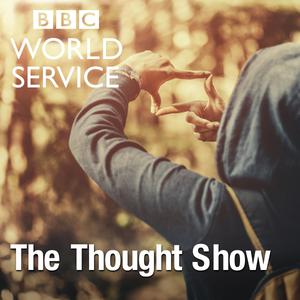 The Thought Show
The Thought Show
 True Story
True Story
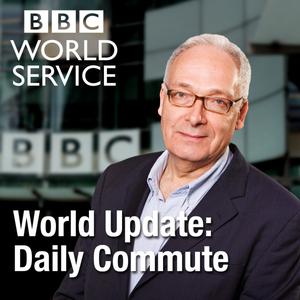 World Update: Daily Commute
World Update: Daily Commute
 The BBC Academy Podcast
The BBC Academy Podcast
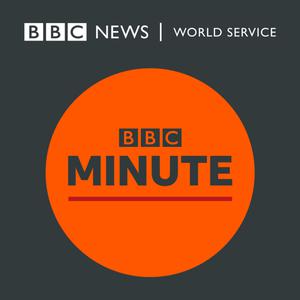 BBC Minute
BBC Minute
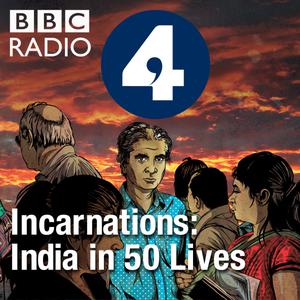 Incarnations: India in 50 Lives
Incarnations: India in 50 Lives